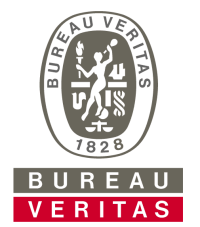GSTC2023 Conference Program
The GSTC2023 Global Conference, to be held in Antalya, Türkiye from 9 to 12 May, will address the following themes: (A) Destination Stewardship; (B) Hotel Sustainability; (C) Sustainable Tours, Experiences, and Attractions; (D) Sustainable MICE.
The Conference days will be on May 10th & 11th.
Conference Schedule
Tuesday, May 9th – Welcome Dinner | ||
| Time | Activity | |
| 11:00 – 12:30 | Meeting with Accredited Certification Bodies (by invitation only) | |
| 14:00 – 15:30 | Meeting with Recognized Standard Owners (by invitation only) | |
| 15:30 – 17:30 | GSTC Government & Destination Members Meeting (by invitation only) | |
| 18:30 | Welcome Reception at Perge Ancient CityMeeting at Nirvana Cosmopolitan at 18:30 for coach transfer to Perge | |
Wednesday, 10th May – Conference Day 1 | ||
| Time | Activity | |
| 8:00 – 9:00 | Registration and Refreshments | |
| 9:30 – 10:10 | Opening Ceremony
| |
| 10:10 – 10:50 | GSTC’s Global Mission and Current Activities Randy Durband – CEO, GSTC [presentation] | |
| 10:50 – 11:00 | Investing in Our Planet – The Global Environment Facility Yasemin Biro Kirtman – Senior Environmental Specialist, The Global Environment Facility (GEF) [presentation] | |
| 11:00 – 11:45 | Refreshment Break and Networking | |
| 11:45 – 12:45 @ Arcturus 1 | (1) Türkiye Sustainable Tourism Program Türkiye Tourism Promotion and Development Agency (TGA), with guidance from the GSTC, has developed the first mandatory national program for accommodations based on the GSTC Criteria and GSTC Assurance program. The Turkish tourism industry will be restructured from 2022 throughout 2030, when all international standards will be met. This session will discuss the goals and details of the Türkiye Sustainable Tourism Program. Moderator: Luigi Cabrini – Chairman, GSTC Speakers:
| |
| 12:45 – 14:15 | Lunch and Networking at Nirvana Cosmopolitan Hotel restaurant | |
| 14:15 – 15:30 @ Arcturus 1 | (2) Port Destinations The presence of ports that receive cruise ships and their passengers is a significant factor in the sustainability of such destinations. Best practice integration, enhancing the sustainability of operations, and improving the relationship between cruise tourism and the host destination are crucial in promoting sustainable tourism practices. In this session we will discuss impact and management of passengers from cruise ships in destinations, along with consideration of actions and initiatives taken by some port authorities and DMOs. Our panelists will discuss the challenges and opportunities of sustainable tourism in port destinations and the importance of the GSTC Destination Criteria in promoting the sustainability of these destinations. Moderator: Dr. Ioannis Pappas – Mediterranean Program Director, GSTC [presentation] Speakers:
| |
| 14:15 – 15:30 @ Arcturus 3 | (3) Sustainable MICE As international travel is returning so does the demand for large conferences as well as business retreats and small meetings. The MICE sector is part of the tourism industry and therefore can and should be part of the journey towards more sustainable practices. This session will discuss how to advance and apply sustainability in the MICE sector. Moderator: Esra Güler – MICE Director, Türkiye Tourism Promotion and Development Agency (TGA) Speakers:
| |
| 14:15 – 15:30 @ Achernar | (4) Small Accommodations & Hostels Sustainability Small accommodations including hotels, resorts, and hostels, are an important part of the tourism industry, some cater to budget-conscious travelers and some to high-end market where both are seeking unique and authentic experiences. While these types of accommodations may have smaller footprints than larger hotels, they still have an impact on the environment and local communities. In this session, we will discuss the challenges and opportunities of promoting sustainable tourism practices in these types of accommodations, and how they can contribute to the overall sustainability of destinations. Moderator: Catherine Gilvarry – Head of Supply Hostelworld Speakers:
| |
| 15:30 – 16:15 | Refreshment Break and Networking | |
| 16:15 – 17:30 @ Arcturus 1 | (5) Sustainable Coastal Destinations Coastal destinations are often some of the most popular and sought-after vacation spots, but with popularity comes challenges in managing the environmental impact of tourism. Challenges include water usage, waste management, rising sea levels due to climate change, and more. In this panel discussion, we will draw on the experiences of coastal destinations that apply sustainable practices in management in addressing challenges faced by coastal tourist destinations. Moderator: Luigi Cabrini – Chairman, GSTC Speakers:
| |
| 16:15 – 17:30 @ Arcturus 3 | (6) Sustainable Experiences – Culture & Nature Tourism can bring people closer to nature and culture, but it can also have negative impacts on these aspects. Sustainable tourism practices can help mitigate these impacts and promote the conservation of natural and cultural resources in an appropriate manner for future generations. In this panel discussion, we will review trends in providing sustainable experiences including the role of local communities and stakeholders in preserving and promoting cultural and natural heritage, as well as the challenges and opportunities associated with sustainable tourism in cultural and natural destinations. Moderator: Ceylan Şensoy – Director of Product Marketing, Türkiye Tourism Promotion and Development Agency (TGA) Speakers:
| |
| 16:15 – 17:30 @ Achernar | (7) Data, Stats, and Trends In this session, industry experts will share their perspectives on the latest data, stats, and trends in sustainable tourism, providing insights into the opportunities and challenges for stakeholders to achieve sustainable and responsible tourism practices. Moderator: Patrick Richards – Director, TerraVerde Sustainability [presentation] Speakers:
| |
| 17:30 – 17:45 | Review logistics by moderators | |
| 18:00 | End of GSTC2023 First Conference Day | |
| 19:00 – 21:00 | Host Destination Dinner at Lara Barut Hotel | |
Thursday, 11th May – Conference Day 2 | ||
| Time | Activity | |
| 8:00 – 9:30 | Registration and Refreshments | |
| 9:45 – 11:15 @ | (8) Inclusivity in Tourism Tourism has the potential to be a transformative force for social and economic development, but for it to truly serve its purpose, it must be inclusive. An inclusive tourism business or destination works to offer positive travel experiences to people with different needs by addressing them from various perspectives, and by providing design and service solutions that aim to cover as many different groups as possible. The promotion of accessible and inclusive tourism requires concerted efforts from all stakeholders, including policymakers, businesses, and the community at large. This session will explore ways to increase inclusivity in tourism and create a more equitable and diverse industry. The panelists will share their experiences, insights, and best practices in promoting inclusivity in tourism and offer strategies for advancing these objectives. Moderator: Natalie Kidd – Managing Director Asia, Intrepid Travel / GSTC Board Member Speakers:
| |
| 9:45 – 11:15 @ | (9) Sustainable Tourism in the Balkan RegionThis session will provide an overview and discussion with examples from important sustainable tourism initiatives in the Balkan region. Moderator: Matthias Beyer – Managing Partner, Mascontour Speakers:
| |
| 9:45 – 11:15 @ | (10) Data-Set Workshop We would like to show the data from the sustainability certifications to the tourists in a comprehensible form so that they can make informed decisions in the future. We want to achieve this by creating a uniform data structure for the results from the GSTC-based certifications on the basis of which the data can be exchanged between platforms. These are our goals:
Speakers:
| |
| 9:45 – 11:15 @ Arcturus 3 | World Economic Forum: Sustainable tourism as a driver for resilient economies and societies According to the World Economic Forum’s Global Risks Report 2023, environmental risks such as failure to mitigate climate change and biodiversity loss represent over half of the 10 most severe global risks in the coming decade, with other risks like employment crisis, lack of infrastructure and even digital inequality accelerating in severity. As highlighted in the Forum’s 2023 Travel & Tourism Development Index, the travel and tourism sector will undoubtably need to become more sustainable to adapt to these growing challenges. However, sustainability-focused development also provides an opportunity for tourism to not just enhance internal sector preparedness for the future, but also allows it to become a fundamental driver and tool for building resilient economies and societies, improving global readiness to meet coming risks and leverage opportunities. Moderator: Topaz Smith – Community Lead, Aviation, Travel & Tourism | World Economic Forum [presentation] Speakers:
| |
| 11:15 – 11:45 | Refreshment Break and Networking | |
| 11:45 – 13:00 @ | (11) Tour Operators’ Preferred Contracting Tour operators have a crucial role to play in promoting sustainability throughout their supply chain. Encouraging and requiring suppliers to follow sustainable practices is an effective way to influence change. However, verifying the sustainability of each supplier can be time-consuming and costly. Therefore, relying on third-party certification can provide a better approach for ensuring the sustainability of the supply chain. This session will focus on how tour operators can phase in preferential contracting of sustainable certified businesses into their supply chain. The session will draw upon examples from key companies that utilize the GSTC Criteria to influence their supply chain in different ways. The panel discussion will explore ways and benefits of providing formal preference to sustainable suppliers, and how these actions drive improvement throughout the sector. Moderator: Randy Durband – CEO, GSTC Speakers:
| |
| 11:45 – 13:00 @ | (12) Hotel Digitalization Solutions In recent years, travel technology has revolutionized the tourism industry, providing new opportunities for hotels to improve their operations, enhance guest experiences, and promote sustainability. As the travel industry continues to evolve, it is becoming increasingly important for hotels to adopt digitalization solutions that promote sustainability through measures such as energy efficiency, water conservation, and waste reduction. Panelists in this session come from various backgrounds, including hotel industry experts, technology providers, and sustainability specialists. They will share their insights on sustainable hotel operations and discuss the challenges and opportunities associated with digitalization solutions. Moderator: Dr. Ioannis Pappas, GSTC Mediterranean Director [presentation] Speakers:
| |
| 11:45 – 13:00 @ Canopus | (13) Attraction Criteria Consultation Workshop Currently, there are two sets of the GSTC Criteria: GSTC Industry Criteria and GSTC Destination Criteria. With growing interest and requests, the Global Sustainable Tourism Council is now developing the GSTC Attraction Criteria. Conference participants are welcome to take part in this consultation activity as part of the development process and help shape the GSTC Attraction Criteria. Facilitated by Dr. Mihee Kang – Assurance Director, GSTC [presentation] Workshop Agenda:
| |
| 13:00 – 14:30 | Lunch and Networking | |
| 14:30 – 15:45 @Arcturus 1 | (14) Sustainability in ResortsResorts cater to increasingly sophisticated consumers that demand only the most exclusive, authentic and environmental-friendly experiences. Many hotels have implemented a green policy, by using sustainable construction materials, recycling waste materials, conserving water, or preserving fragile ecosystems. Sustainability doesn’t mean compromising on quality: several of the world’s most known hotel brands see sustainability as a core of their offering. In this session we will discuss the aspect of sustainability in resorts. Moderator: Koko Tang – CEO, Vinetree Tourism; GSTC Board Member Speakers:
| |
| 14:30 – 15:45 @ Arcturus 3 | (15) Sustainable Rural TourismRural tourism has become increasingly popular over the years as more people seek out unique experiences outside large cities. However, tourism development can have negative impacts on the environment and local communities, which is why sustainable rural tourism has emerged as a way to balance economic benefits with environmental and social empowerment. In this session, our expert panelists will share their insights on how we can promote sustainable tourism practices in rural areas, and the importance of preserving rural environments and cultures along with development. We will also explore the role of community involvement and responsible practices. Moderator: CB Ramkumar – Vice-Chair & South Asia Program Director, GSTC [presentation] Speakers:
| |
| 14:30 – 15:45 @ Canopus | (16) MICE Criteria Consultation Workshop Currently, there are two sets of the GSTC Criteria: GSTC Industry Criteria and GSTC Destination Criteria. With growing interest and requests, the Global Sustainable Tourism Council is now developing the GSTC MICE Criteria. Conference participants are welcome to take part in this consultation activity as part of the development process and help shape the GSTC MICE Criteria. Facilitated by Dr. Mihee Kang – Assurance Director, GSTC [presentation]
| |
| 15:45 – 16:30 | Refreshment Break and Networking | |
| 16:30 – 17:45 @ Arcturus 1&2 (plenary) | (17) Travel Sustainable: Booking.com Program In 2021, Booking.com introduced its Travel Sustainable program, a framework designed to highlight and support its accommodation partners on their sustainability journeys. During this session, we will hear from representatives from Booking.com who will share insights on the Travel Sustainable program, including its goals, initiatives, and impact. We will also have an opportunity to discuss the role of online travel agencies in promoting sustainable tourism, and how industry-wide collaboration can help drive positive change. As Travel Sustainable evolves, Booking.com continue to use the GSTC Criteria to inform program developments, as Booking.com endorses and encourages compliance by all hotels to 100% of the GSTC Industry Criteria. Moderator: Roi Ariel – General Manager, GSTC Speakers:
| |
| 17:45 – 18:00 | Closing session | |
| 19:30 – 21:30 | Farewell Cocktail Dinner at Nirvana Cosmopolitan | |
Friday, 12th May: Post-conference tour | ||
| 10:00 – 16:00 | Complimentary Guided Tour | |











